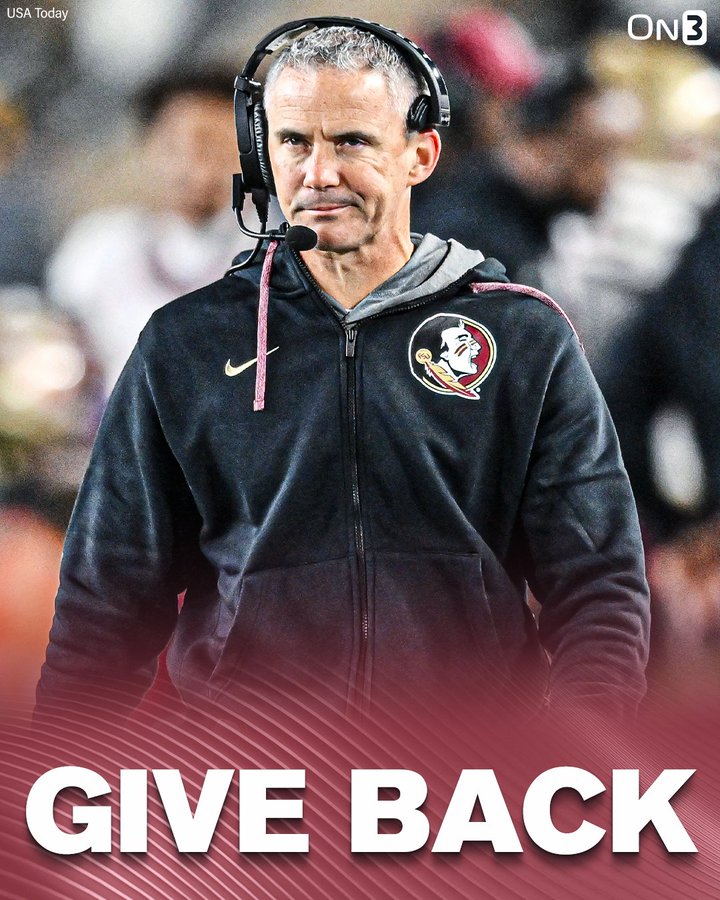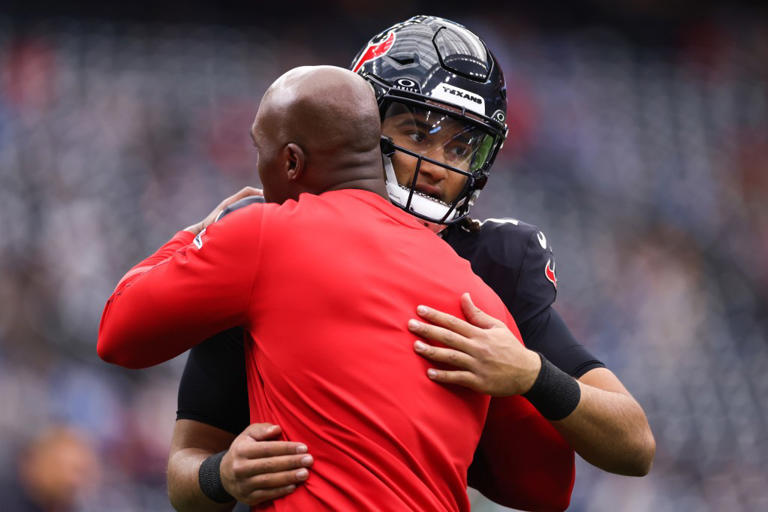
Florida State University head football coach Mike Norvell has made a significant gesture by contributing a portion of his salary to the university as part of a restructured contract, a move that highlights his commitment to the future of the program. According to Yahoo Sports’ Ross Dellenger, Norvell is contributing $4.5 million of his salary this year, marking a notable step as schools prepare for the upcoming era of athlete revenue sharing. This restructured deal represents a larger trend where coaches, such as Norvell, are adjusting their compensation packages to help bolster the financial foundation of their respective athletic departments in anticipation of changes to college sports’ financial landscape.
The decision comes at a time when universities are facing new financial realities. As part of the settlement of a legal case, starting July 1, Division I schools will be required to share at least $20.5 million in revenue with athletes. This new revenue-sharing system is the result of a broader movement that seeks to ensure athletes are compensated in line with the billions of dollars generated by college sports. Norvell’s contribution is a clear signal that he supports the shift and wants to assist Florida State in preparing for this new financial structure. The gesture is also part of the university’s broader “Vision of Excellence” campaign, which aims to raise funds to support the athletic department as it navigates these changes.
Mike Norvell’s decision to contribute such a large sum is notable not only because of its financial magnitude but also because it underscores his leadership and dedication to the future of Florida State football. This is the third instance of a coach publicly making such a gesture in the face of the changes ahead. Coaches are taking steps to ensure their programs remain competitive and well-funded, with many recognizing the importance of contributing to the broader financial stability of their schools as the athletic landscape shifts.
Norvell’s restructured contract is also a reflection of his growing stature within college football. Earlier in the year, Norvell received a new contract that nearly doubled his salary to $9.9 million. By the end of the contract, which runs through 2031, Norvell is set to make close to $11 million annually. This new deal is an endorsement of his success at Florida State, particularly in light of his efforts to rebuild the program after a challenging period.
Before Norvell’s arrival, Florida State had struggled to regain its previous dominance in college football. The program had gone through a period of rebuilding, including a difficult 2-10 season just one year after winning the ACC. However, Norvell’s leadership has helped the team regain its footing, and the program has started to show signs of progress. This has been evidenced by the hiring of UCF’s Gus Malzahn as the new offensive coordinator. Malzahn, known for his innovative offensive schemes, has a proven track record of success, which made him an ideal candidate to help Florida State return to prominence.
Norvell expressed his excitement about Malzahn’s hiring, emphasizing the coach’s experience in developing high-powered offenses. He noted that Malzahn’s offenses have been known for their ability to combine a strong running game with explosive passing plays. Norvell’s enthusiasm reflects the importance of this hire in Florida State’s efforts to revitalize its offense and become a top contender once again in college football.
The restructuring of Norvell’s contract and his contribution to the university comes at a time when the landscape of college football is undergoing significant changes. The advent of the athlete revenue-sharing system is just one part of this broader transformation. The new system, which requires schools to share a substantial portion of their revenue with athletes, will likely have wide-reaching implications for the way college sports operate. Coaches, administrators, and universities are all adjusting to these changes in different ways. Some, like Norvell, are taking proactive steps to ensure their programs are well-positioned for the future.
In addition to Norvell’s actions, other coaches have also made similar moves. For example, LSU head coach Brian Kelly announced that he would match donations to LSU’s collective up to $1 million. This illustrates a broader trend in which coaches are becoming more directly involved in the financial aspects of their programs, understanding that the success of their teams depends not only on performance but also on financial stability.
For Florida State, Norvell’s contribution is just one part of a larger strategy to ensure that the athletic department is prepared for the future. The university is already actively working to raise funds through its Vision of Excellence campaign, which aims to secure the resources needed to support its athletic programs during this period of transition. As the financial landscape of college sports continues to evolve, Florida State’s leadership is positioning itself to remain competitive, both on and off the field.
Norvell’s contribution of $4.5 million serves as a powerful example of how college coaches are adapting to the changing landscape of college athletics. It shows that coaches are willing to take on a leadership role in ensuring their programs are financially sound and prepared for the new era of athlete compensation. As the NCAA continues to navigate the complexities of revenue sharing and other changes, coaches like Norvell will likely play an important role in shaping the future of college sports, particularly at schools like Florida State that are committed to success both on the field and in their financial strategies.





